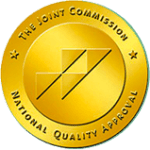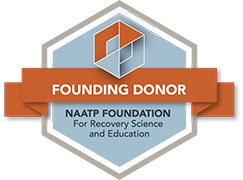Creating Healthy Habits in Recovery
A successful, lasting recovery depends on our willingness to shed our unhealthy habits and replace them with new, empowering ones. Living with addiction, we’ve developed all kinds of habits that fed our insecurities and self-hate, that perpetuated our cycles of self-destructiveness and self-sabotage, that exacerbated our addictions and kept us living in pain and fear. We formed defense mechanisms that were designed to protect ourselves but which were actually self-harming because deep down we’re full of self-deprecation rather than self-love. We have mental, emotional, physical and spiritual habits that fuel the fire of our self-destruction. We develop anxiety disorders and toxic thought patterns. We instinctively suppress our emotions. We choose silence. We form obsessions and compulsions. We have chronic anxiety. We become compulsive liars and shoplifters. We use our addictive relationships, drugs and behaviors of choice to try to escape our pain. Our habits become our routines, and our routines are the foundation for our daily lives. We can’t experience true recovery if we’re holding onto the habits that compounded our addictions.
Letting go of our harmful habits means becoming aware of them. This requires that we develop self-awareness and consciousness around how we’re thinking, feeling and behaving. As we become more mindful, we see just how much we’ve been hurting ourselves. The process of detaching from our toxic habits involves making the crucial decision that we deserve better, that we deserve self-love, that we are worthy of being good to ourselves. When we are mired in our addictions, we often don’t have the clarity to see just how bad our habits are. We’re not at peace, and we’re not thinking clearly. As we develop mindfulness and self-awareness, little by little, we’re better able to analyze our thoughts and feelings about ourselves and our lives.
A wonderful mindfulness exercise to help with this process is journaling. Start to take inventory of what your day looks like. Observe your day as objectively as you can. Write down everything you’re doing on any given day. Be specific and detailed. Try to think of everything, even if it seems insignificant. Our time adds up, and we’re often surprised at the ways in which we’re wasting it – scrolling through our social media feeds, zoning out in front of the computer, having conversations that don’t uplift us. What do you do first thing when you wake up? What is your morning routine? How do you spend your days? What are your evening and bedtime routines? What things are you able to get done? What things get left undone? What gets neglected?
Chances are your daily routine allows plenty of time for the habits that don’t serve you – worrying, negative thinking, overanalyzing – and not enough time for the habits that can empower you in your recovery – self-care, spiritual practice, exercise, meditation, energy healing, writing. If you’re like many of us, your routine probably also prioritizes everything and everyone else over you and your own needs. While we have obligations and responsibilities we can’t simply shrug off, we have to start carving out some time to dedicate to creating healthier habits for ourselves.
Let’s start small, and tackle one habit at a time, in small increments. If you’re looking to start meditating more, incorporate a couple minutes when you first wake up, as you’re going to sleep, sitting at your desk, or in your car during your commute. Don’t feel as though you have to become a master meditator as soon as you begin. Don’t worry about trying to find an hour every day to meditate when your day is already full to the brim. If you’re hoping to exercise more, take a quick walk before dinner, and then do it again tomorrow night, and the night after, rather than overthinking it and deciding that you need to start a new daily workout routine at an expensive gym that you probably won’t make time for. Find small, simple solutions that work for you, that you can realistically incorporate into your daily life. The more you practice the habit and the more consistent you can be, the more it will stick and become part of your normal routine.
The habits of addiction often fueled our insecurity, our anxiety and our inner turmoil. They often compounded the existing fears we still hadn’t healed from. When we work to create healthier habits for ourselves, we’re making the choice not to let ourselves be overpowered by our addictions and mental health issues any longer. We’re taking the stance that we are stronger than our illnesses. We deserve to put time, energy and emotion into caring for ourselves. Find the self-care and spiritual practice elements that resonate with you, that make you feel calmer, more at peace, more grounded and more fulfilled. Work to be as consistent with them as you can, and watch your habits transform your routines and therefore your life, which will include the success of your recovery.
Established in 1939, High Watch is the world’s first 12-Step treatment center. Every individual who walks through our doors joins a definitive culture of compassion, dignity, and respect from a genuinely caring staff dedicated to seeing the disease of addiction find remission. Providing proven therapeutic approaches and comprehensive 12-Step education, patients leave High Watch with the confidence to maintain abstinence and live a healthy, happy, sober life. Start your journey today by calling 860.927.3772.








